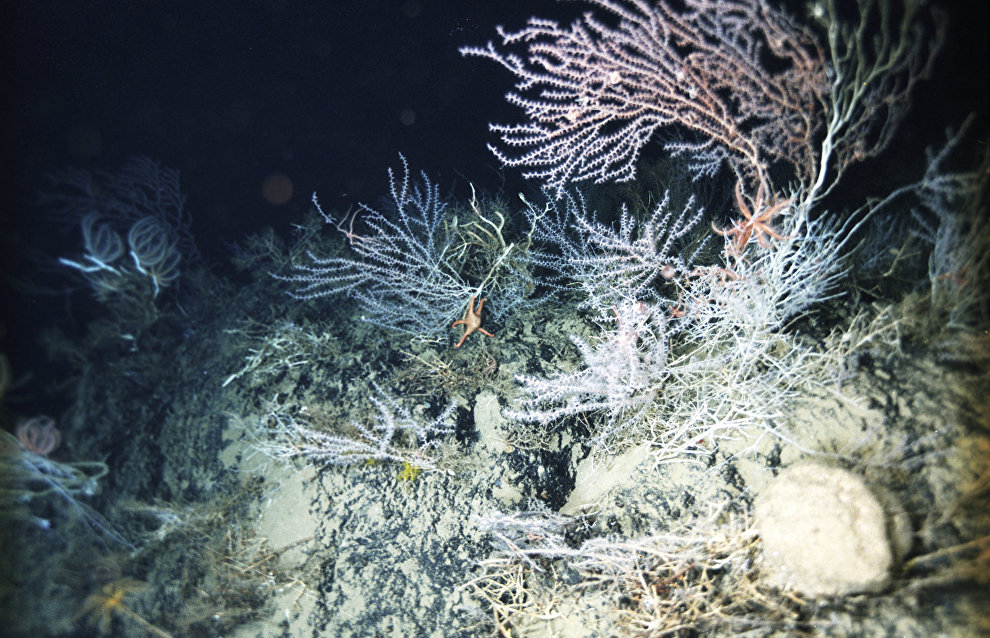World’s first marine geology encyclopedia presented at UArctic Congress
A presentation of the world's first Encyclopedia of Marine Geosciences was held at St. Petersburg State University as part of UArctic Congress 2016, the university's press service reported. The encyclopedia's authors sought to create a comprehensive database of the history and development of the seabed.
"The researchers could only use information that has been collected over the past 50 years, when marine researchers had access to modern technology, including research vessels. We used all the available information to create a comprehensive database," said one of the editors, Professor Jörn Thiede, head of the Köppen-Laboratory (Paleogeography and geomorphology of polar countries and the World Ocean) of the Institute of Earth Sciences at St. Petersburg State University.
Professor Thiede said researchers from many countries took part in the studies that are described in the encyclopedia. The other editors are Jan Harff (University of Szczecin, Poland), Martin Meschede (University of Greifswald, Germany), and Sven Petersen (Geomar, Helmholtz Centre for Ocean Research in Kiel, Germany).
Thiede said the encyclopedia will be useful not only for marine researchers but also for students and graduate students in related majors, as well as a wide range of readers with a basic geological education.
A copy of the book has been presented to St. Petersburg University and will be kept at the university's Gorky Scientific Library.
The University of the Arctic (UArctic) is a cooperative network of over 180 universities, research institutes and other organizations from 16 countries that was created to promote cooperation in research and education towards the sustainable development of the northern regions and people. Through cooperation in education, research and outreach, UArctic is promoting mankind's potential in the north while also promoting viable communities and sustainable economies.
